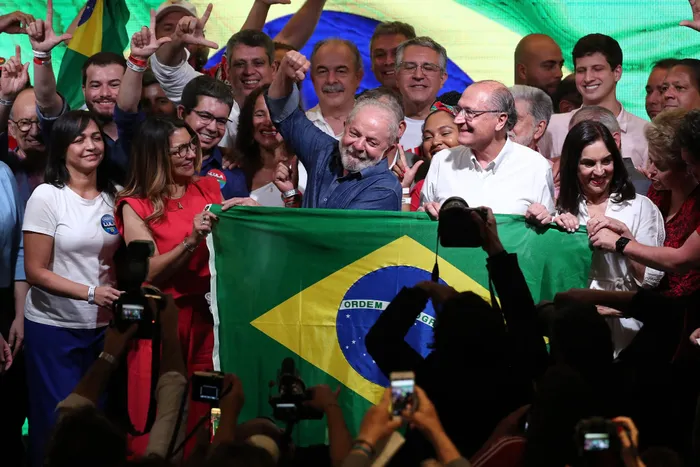How will President Lula navigate his affinity for Russia?

Picture: EPA-EFE – The world can expect a more progressive Brazil on the geopolitical landscape with Luiz Inácio Lula da Silva as president, says the writer.
By David Monyae
Luiz Inácio Lula da Silva, popularly known as Lula, was inaugurated as the 39th president of Brazil on January 1 following his election victory in October 2022. Lula defeated the incumbent Jair Bolsonaro whose right-wing leanings inspired a massive mobilisation of Brazil’s leftist constituency which propelled Lula to his third term as president. A lot has been said about the implications of Lula’s presidency on the global geopolitical landscape and not least on the Brazil, Russia, India, China and South Africa (BRICS) grouping.
Brazil is the 12th biggest economy in the world boasting a GDP of $1.44 trillion (R25trln) and a market of over 200 million people. These numbers mean that the country’s policy direction under the new president will have significant implications on a global scale and most certainly will add a new dimension to the BRICS bloc. Lula is one of the founders of the bloc, having been president when it was launched in 2009. As such, it is fair to say that BRICS is his baby. The BRICS agenda of bringing into existence an alternative global order which is responsive to and accommodates the interests of the developing world dovetails with Lula’s socialist political and economic outlook.
Unlike his predecessor who was leaning more towards the US and other traditional powers and less invested in remaking the world order, Lula is likely to reinvigorate the BRICS drive towards a new order. In his first stint as president (2003-2011) Lula ushered Brazil into a strong relationship with China and Russia, which eventually saw the former becoming Brazil’s biggest trading partner while trade with Russia has also grown significantly. Moreover, his Africa policy, saw Brazil strengthening its ties with the continent in terms of trade and investment as well as diplomatic relations. Hence, his return to the BRICS fold will be important in consolidating the group and revitalising its Global South agenda and its commitment to the South-South co-operation framework.
Lula’s ascendancy to the Brazilian presidency comes at a defining moment for BRICS when its leaders are seriously considering expanding the group by incorporating new members. Countries such as Turkey, Iran, Argentina and Senegal among others have indicated their wish to join the group with some having even submitted formal applications. Lula is likely to strongly support the expansion of the group in a bid to make it more inclusive and to improve its strategic footing in political, geographical, and economic terms. The new president will particularly promote Argentina’s incorporation into the group which will help strengthen South America’s voice and interests in the BRICS agenda.
However, in the interests of inclusiveness and representation, Lula is likely to support the inclusion of countries from other regions, especially Africa. Beyond BRICS, it is interesting to see how Brazil’s new administration will impact the global geopolitical landscape and the discourse on major global issues. As a known advocate for global governance reforms, Lula is also likely to push for the reform of such institutions as the UN Security Council, World Bank, the International Monetary Fund and the World Trade Organisation which have been charged with marginalising developing countries while not doing enough to reduce global inequality.
Further, Lula’s presidency coincides with the rise in US-China tensions, which have seen the world’s two biggest economies engage in a bitter trade war for the last four years. All this is in competition for global economic and political influence. The election of Lula in Brazil will tilt the scales towards China in the South American region and thus give Beijing a significant boost against the US. This will give China an opportunity to counteract the punitive trade restrictions from the US which are designed to reduce the Asian giant’s export markets.
Moreover, Lula’s administration assumes power almost a year after Russia’s invasion of Ukraine. The Russia-Ukraine war has divided the world and led to the rise of tensions between Russia and the US, reminiscent of the Cold War era in the 20th century. The US and its Western allies have strongly campaigned for the isolation of Russia at the UN and imposed far-reaching economic and diplomatic sanctions on Moscow. Lula’s predecessor, Bolsonaro, has not held a consistent position on the war as demonstrated by his administration’s changing voting patterns in the UN resolutions on Russia. As an advocate of peace, it remains to be seen how Lula will navigate his affinity for Russia on the one hand and anti-war principles on the other.
Finally, Lula’s presidency also comes at a time when the world is grappling to find solutions to climate change. Under his leadership, Brazil will add its voice for climate justice and emphasise the need to find urgent and collective solutions to the effects of climate change. Overall, the world can expect a more progressive Brazil on the geopolitical landscape.
David Monyae is Associate professor of international relations and political science and director for the Centre for Africa-China Studies at the University of Johannesburg